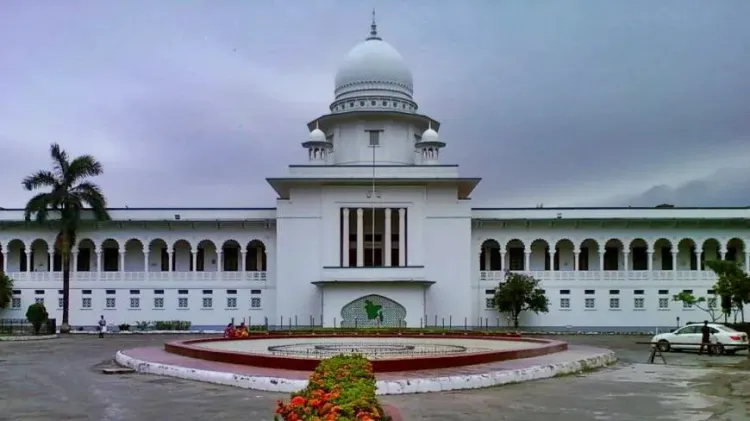Why Did the Supreme Court Acquit Islamist Leader ATM Azharul Islam in a War Crimes Case?

Synopsis
Key Takeaways
- Supreme Court acquitted ATM Azharul Islam.
- Death sentence from International Crimes Tribunal overturned.
- Charges included mass murder and abduction.
- Immediate release ordered if no other cases pending.
- Significant implications for Bangladesh's historical justice.
Dhaka, May 27 (NationPress) In a significant ruling, the Supreme Court has overturned the death sentence imposed by the International Crimes Tribunal (ICT) on Jamaat-e-Islami leader ATM Azharul Islam, thus acquitting him of all charges. Azharul was accused of crimes against humanity during the country’s Liberation War in 1971.
The allegations included the murder of 1,256 individuals, abduction of 17, and the rape of 13 women in the Rangpur area, as reported by local news sources.
The top court instructed the prison authorities to immediately release Azharul if there are no other pending cases against him, according to local media.
Despite previous convictions, a full bench of seven justices, led by Chief Justice Syed Refaat Ahmed, delivered the verdict after examining Azharul's appeal.
He was taken into custody in August 2012 during a raid at his home in Dhaka's Moghbazar and remained incarcerated.
In December 2014, the ICT sentenced him to death on five out of nine charges, including mass killings and torture in the greater Rangpur region, where numerous atrocities were committed.
It has been reported that Azharul was involved in acts of violence, including setting fire to hundreds of homes.
Following his conviction, Azharul filed an appeal in January 2015, but the Appellate Division upheld the death sentence in October 2019.
After the full verdict was released on March 15, 2020, he submitted a review petition which the Supreme Court accepted.
The Appellate Division granted leave to appeal on February 26, 2025, and directed the case summary to be submitted, which was later completed.
The court ultimately delivered its final judgment on Tuesday, leading to Azharul's acquittal, as reported by Bangladeshi daily Prothom Alo.
Recently, the interim government led by Muhammad Yunus lifted the ban on Jamaat-e-Islami and its student faction, Islami Chhatra Shibir, through a gazette notification.
These radical groups previously collaborated with student leaders and Yunus to unseat the democratically elected government of former Prime Minister Sheikh Hasina.









